HOW TO WRITE VIDEO GAME MUSIC
a thinkspace interactive course
$249
LEARN TO COMPOSE AND PRODUCE FOR THE FAST-GROWING SCENE
LEArN FROM INDUSTRY-LEADING GAMES COMPOSERS
Let a team of true industry professionals teach you how to master the creative and technical challenges of composing for games.
You’ll learn about the different systems used to implement music and how your writing style needs to adapt to match these needs.
You'll also learn how to approach composing for cutscenes and cinematics, and be introduced to the technical knowledge you need to implement your audio directly into the game. Plus there's a bonus module on how to find work in this industry.
RICHARD WILKINSON
Games Composer
(Peaky Blinders: The King's Random, Narcos: Rise Of The Cartels)
STEPHEN BAYSTED
Games Composer
(Fast & Furious: Crossroads, The Walking Dead: Assult)
CHRISTINE HALS
Games and Film Composer
(God of War: Ragnarök, Frozen, Frozen II)
GUY MICHELMORE
(COURSE HOST)
Composer, ThinkSpace Founder and CEO
(Marvel, Disney, Dreamworks)
BRADLEY JORDAN
(COURSE CO-HOST)
Composer and Music Editor
COURSE BREAKDOWN
1. WRITING MUSIC THAT LOOPS
Writing music that loops is a key skill any composer needs when working on games. We will demonstrate how to make your music loop and the creative considerations that you need to make to do so.
2. COMPOSING FOR HORIZONTAL SYSTEMS
Horizontal music systems are the most common approach to composition and technical implementation when writing for video games. Here we show you what that means, how you can write music for this type of implementation technique, and what extra elements you might need to incorporate to make it work effectively.
3. COMPOSING FOR VERTICAL SYSTEMS
If you're not working in a horizontal system, you're likely going to be working in a vertical system. These different systems are useful in different circumstances, and what works for one project might not work for another. This module explores the differences between Horizontal and Vertical systems and how each must be approached.
4. SCORING CINEMATICS
Cinematics and cutscenes are a big part of communicating narrative in video games, so much so that it’s very much like film scoring. In this module we’ll show you how to spot and score for these types of ‘films’ and how it differs from typical media scoring.
5. INTRODUCTION TO IMPLEMENTATION
Composers don’t always have a lot to do with the implementation of their work, but it can be something that you will find yourself doing in smaller development teams. Here we introduce you to FMOD and Wwise and how this software is a core tool in implementing interactive and dynamic music directly into the game
6. CAREER ADVICE (BONUS MODULE)
This is an introduction to how the world of work looks in the video game music industry. Here we have chats with some of the instructors seen throughout the course about how you can go about preparing yourself for work and what that might look like to someone looking to enter the industry.
creating loops for Fast & Furious: CrossROADS
Looping music is a primary cornerstone of game music composition that you must learn to master if you want to be successful in the industry.
In this video, professional games composer Stephen Baysted explains how he created and layered loops for the best-selling franchise game.
“I've really enjoyed the course – especially the tutorials and interactions between Bradley and Richard Wilkinson. Very helpful!”
Glenn, How To Write Video Game Music student
“I’m really enjoying these excellent courses and how they complement each other. They are really enhancing my understanding of music composition and production.”
Mark, How To Write Video Game Music student
This course is powered by ThinkSpace Interactive – offering so much more than just great video tutorials. We have developed exclusive new technologies to help you understand topics more easily, progress faster, and bring us closer to you!
INTERACTIVE VIDEO
Interactive video and quizzes mean that you can not only test your knowledge as you progress, but we also give you the opportunity to introduce yourself and tell us what you're looking for from the course. The course remembers your choices and will be relevant throughout the program when analysing your progress.
MinusONE ASSIGNMENTS
Learning how to write your own music can be overwhelming when starting from scratch. Now we provide you with stems that build most of a track, but "minus one" important stem. This allows you to focus purely on the one instrument group that module is focussing on, without thinking too much about the composition or its structure.
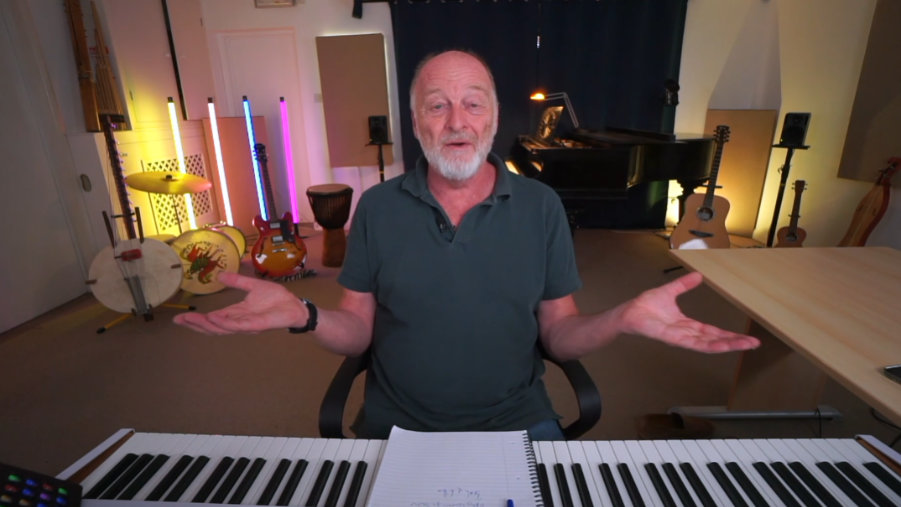
Learn at your own pace with on-demand video tutorials
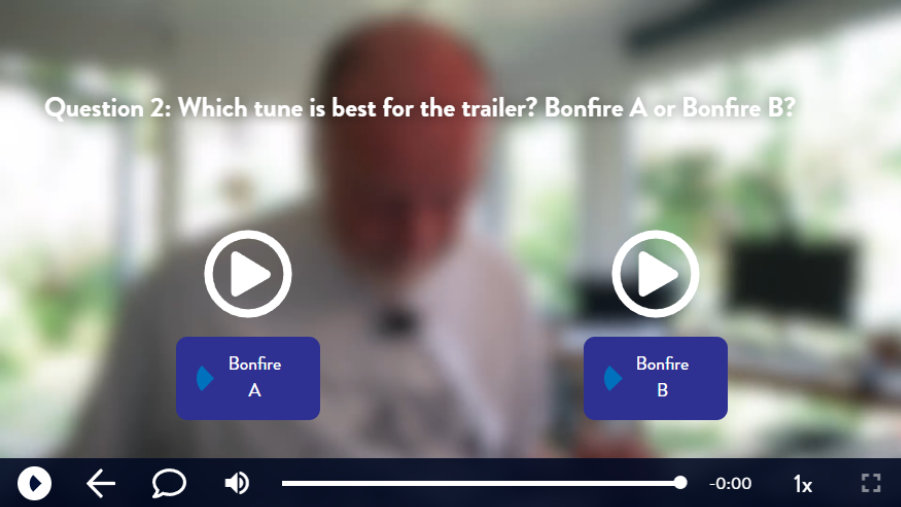
In-video questions to personalise your learning journey
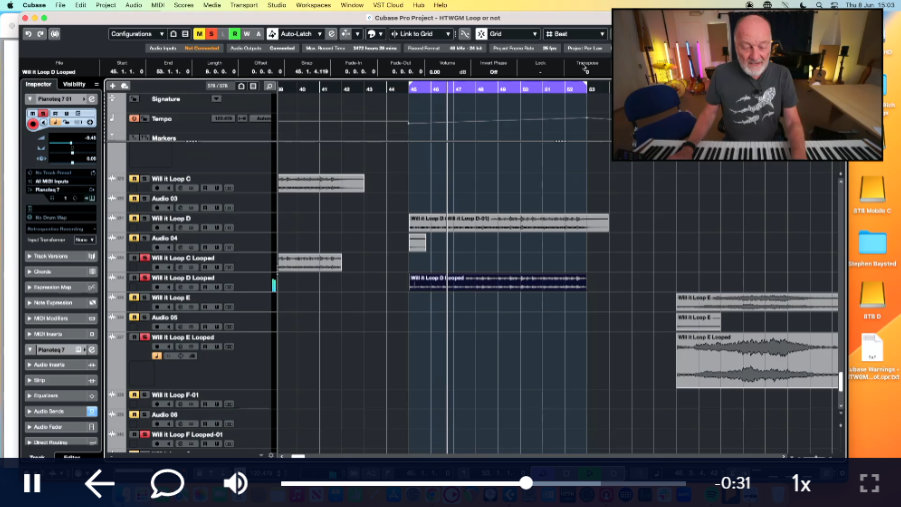
MinusONE challenges help you focus on particular instruments
Join composers around the world on DISCORD
We want to bring our students closer together, as we understand online learning can be isolating at times. With this course you will also get access to our exclusive ThinkSpace Community Discord channel. Anyone on this course, and other courses that use ThinkSpace Interactive, can join.
We hope you use this community as a relaxed environment to share your work with each other and ask questions amongst other people in similar situations as you. We've had plenty of experience running a Discord server for our Postgraduate Degree students, and we're very excited to bring this to our other courses too.
Buy Today, start anytime
- Taught by industry-leading game composers
- Master the creative and technical skills required to write music for games
- Interactive videos and quizzes for personalised learning
- Lifelong access to our worldwide Discord network of composers
Lifetime access. Start, finish and revisit anytime.
30-day money-back policy
Frequently Asked Questions
If you are thinking about taking the course, there are some requirements you may want to consider. Here are the most frequently asked student questions to help you to assess whether the course is right for you.
Related Courses

HOW TO WRITE TRAILER MUSIC
$249
A ThinkSpace Interactive course. Learn from industry pros how to compete in the new era of trailer music.
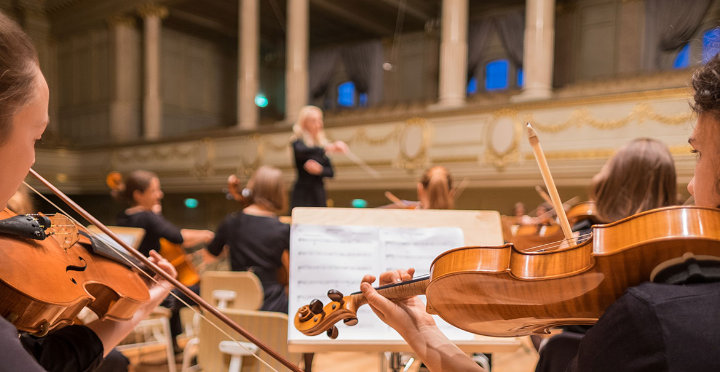
SAMPLED ORCHESTRATION
A ThinkSpace Interactive course. Create MIDI mockups with the realism of a live orchestra.
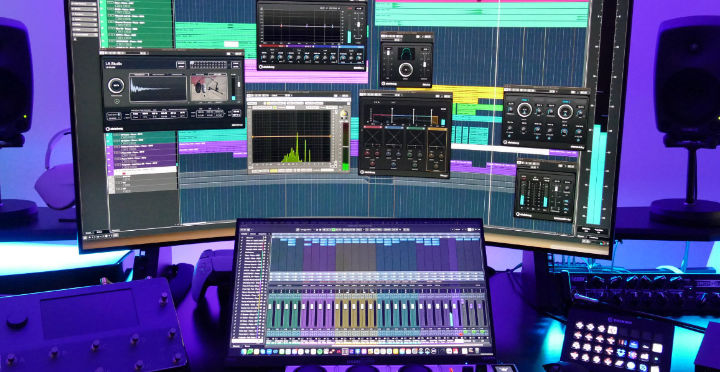
INTRODUCTION TO MIXING
$189
A ThinkSpace Interactive course. Learn foundational techniques for great-sounding mixes, every time.
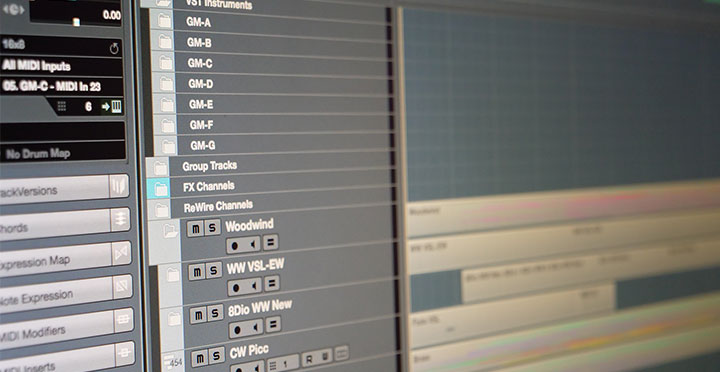
HOW TO SCORE FILMS
$99
The ultimate step-by-step guide that includes films to download and score.
Related Masters degrees

MA COMPOSING FOR VIDEO GAMES
Working with video games has many of its own challenges, and this course will teach you how to work in an adaptive and interactive medium, whilst also looking at the different compositional techniques used for different types of video games. You will look at audio implementation, looping and layering, dynamic scoring, and much more.

MA SOUND DESIGN FOR VIDEO GAMES
Explore the process of creating and manipulating sounds for a wide variety of game genres. Learn about creating atmospheres, recording your own bespoke sounds, syncing to picture and cutscenes, plus lots more. You will get the chance to learn from sound designers who have worked on everything from indie games to AAA games.


